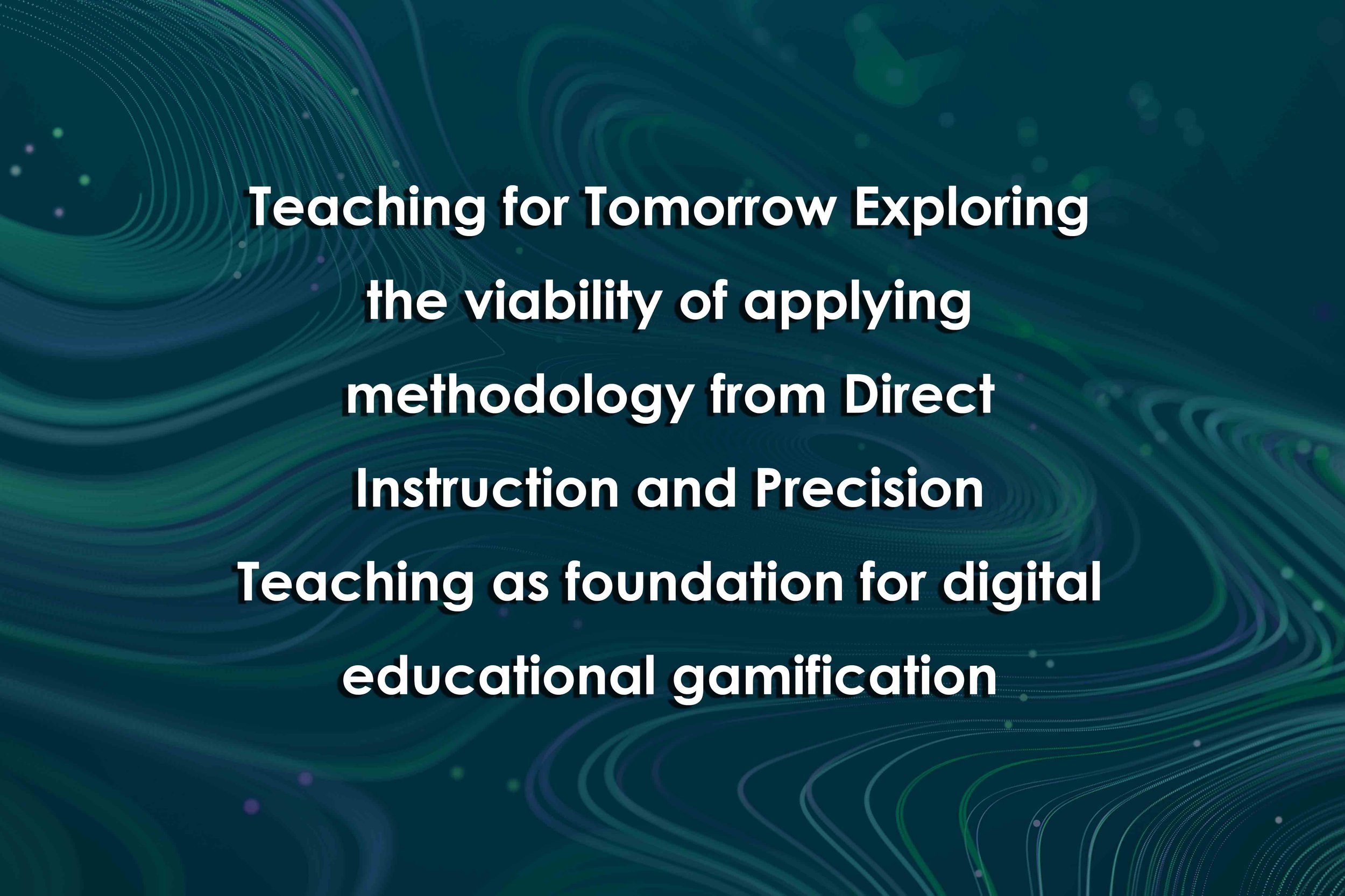Teaching for Tomorrow Exploring the viability of applying methodology from Direct Instruction and Precision Teaching as foundation for digital educational gamification
Teaching for Tomorrow Exploring the viability of applying methodology from Direct Instruction and Precision Teaching as foundation for digital educational gamification
Teaching for Tomorrow Exploring the viability of applying methodology from Direct Instruction and Precision Teaching as foundation for digital educational gamification
Svein-Kåre Bjørnsen
Abstract
"Serious games, gamification and adaptive learning systems have in recent dec-ades been exploding fields of research. However, high-quality research on their efficacy is rare, and the results are highly variable, while concrete evidence-based educational methodology is lacking. The discipline of behavior analysis has generated evidence-based educational methods that have long histories of good results, however these are not commonly known, and have not seen mainstream adoption in educational systems around the world. In this thesis, I present a prototype of a lightly gamified system for teaching facts that was aimed at adapting to the learner’s personal learning aptitude and typing speed. The prototype applied principles from the evidence-based methods Direct Instruction and Precision Teaching to train the participants using frequency- building of correctly typed responses in a flashcard-like web-based application. A mixed-methods study was conducted in an attempt to gauge the prototype’s efficacy, the user’s reactions to it, and the viability of applying these methods without considerable assistance from experts in them. The study had a quasi- experimental part that utilised a pretest, posttest and a retention test; following the experiment, a questionnaire containing likert items as well as free-text re-sponses was issued. A thematic analysis was conducted on the qualitative data from the questionnaire. The prototype was tested in conjunction with a cloud technology course in Norway with students at the bachelor level in university. There was statistically significant increase in score for the experimental group between the pretest and posttest, with a slight statistically significant decrease between posttest and retention test. The percent-wise increase in score had a mean of 95% from pretest to posttest, and -9% from posttest to retention test. Comparison with the control group, and calculation of effect size, was infeasible due to sampling issues. The reactions from the participants were mixed, and sev-eral technical deficiencies with the prototype were identified. The prototype showed promise when tentatively compared to results from the literature on serious games, gamification and adaptive learning systems, and a future replication seems worthwhile. However, I recommend that future work in this direction be interdisciplinary, since properly implementing the methods is not trivial without expert guidance."
Reference
Bjørnsen, S.-K. (2023). Teaching for tomorrow: Exploring the viability of applying methodology from Direct Instruction and Precision Teaching as a foundation for digital educational gamification. Norwegian University of Science and Technology (NTNU). https://ntnuopen.ntnu.no/ntnu-xmlui/bitstream/handle/11250/3087623/no.ntnu:inspera:139586733:34897062.pdf
Keywords
Serious games, Gamification, Adaptive learning systems

